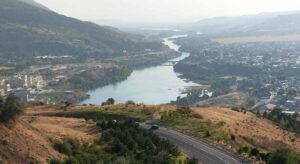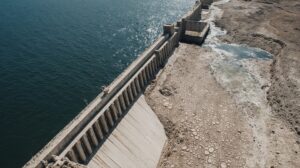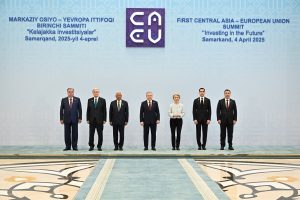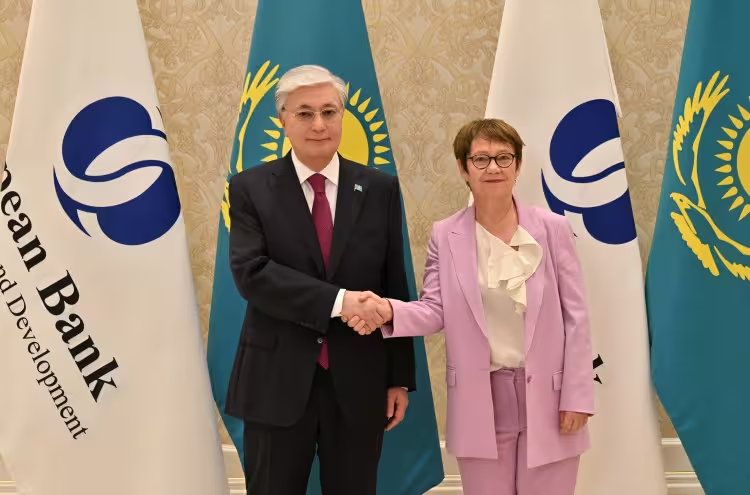President Shavkat Mirziyoyev of Uzbekistan delivered an address at the Samarkand Climate Forum, urging world leaders, development partners, and environmental advocates to join forces in addressing the escalating impacts of climate change across Central Asia and beyond.
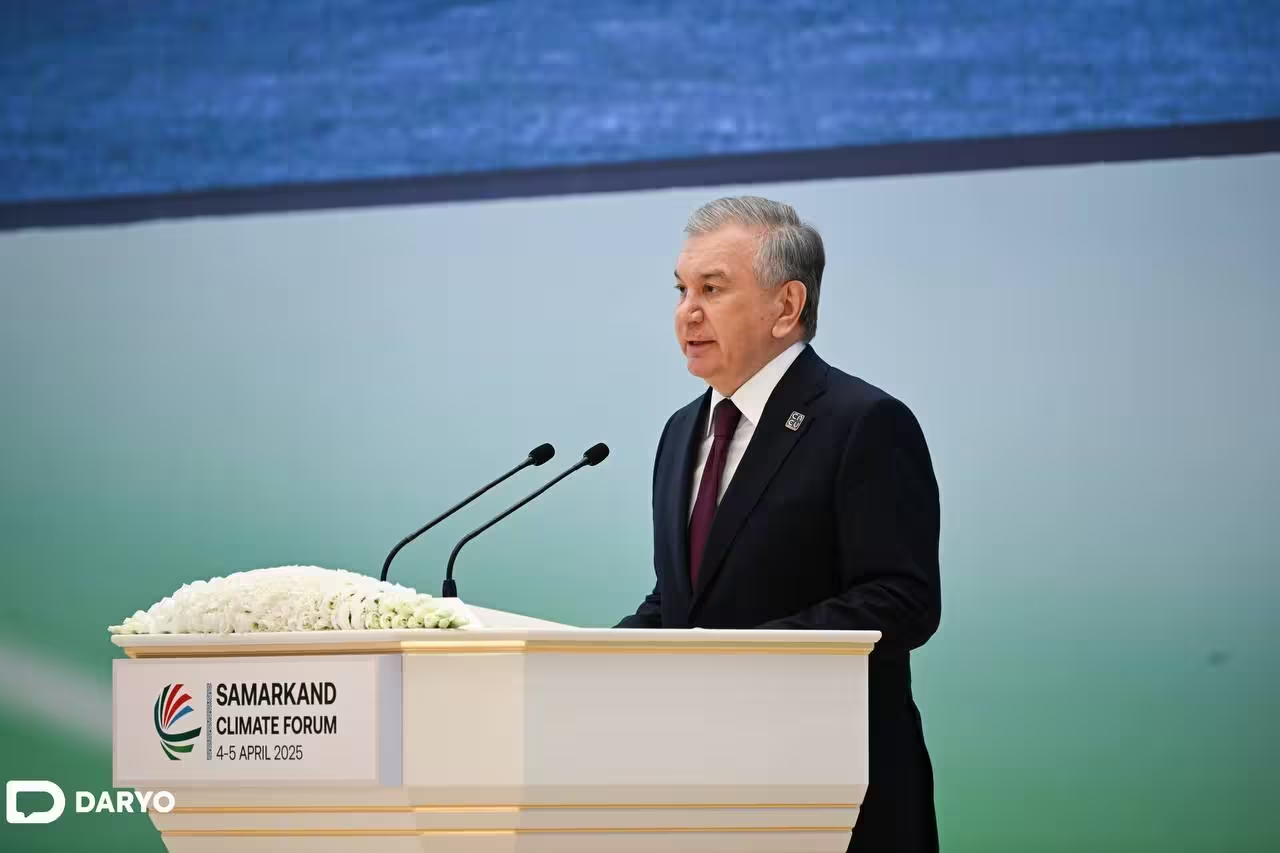
Speaking before an audience of distinguished delegates from the European Union, Central Asian nations, United Nations agencies, international financial institutions, and global environmental organizations, Mirziyoyev emphasized the urgency of the global climate crisis and Uzbekistan’s commitment to driving sustainable, green development in the region.
“Last year marked the first time the average global temperature rose by more than 1.5 degrees Celsius,” Mirziyoyev noted. “The past decade was the hottest period in the entire history of meteorological observations. As a result, today all of us feel the negative effects of climate crises – growing scales of wildfires and desertification, melting of glaciers, increasing shortage of water resources, and air pollution.”
Highlighting the collective efforts of Central Asian countries, Mirziyoyev praised the adoption of the Regional Climate Change Adaptation Strategy and reaffirmed Uzbekistan’s commitment to implementing shared environmental goals. He also acknowledged strong cooperation with European partners on mitigating the effects of the Aral Sea disaster, promoting clean energy, and fostering sustainable water management.
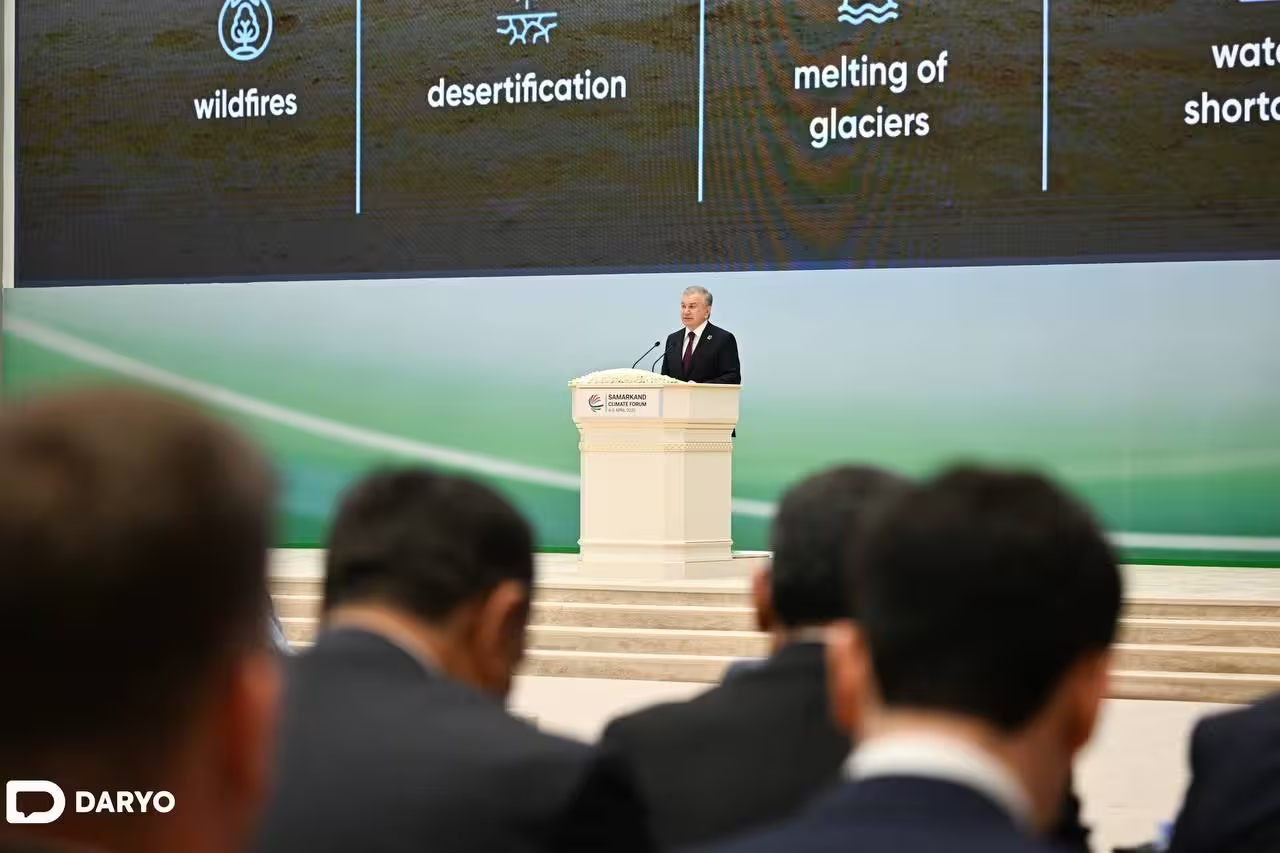
The president highlighted stark projections that Central Asia’s population could exceed 100mn in the next 25 years, while over 20% of land is already degraded. Without urgent action, crop yields may fall by one-third within the same period.
He called for enhanced scientific cooperation to improve the adaptation capacity of agriculture and forestry and proposed stronger engagement under the EU’s HORIZON EUROPE program to bolster food security.
“Green Belt of Central Asia” Proposal
In a bold regional initiative, President Mirziyoyev proposed the launch of an annual “Green Belt of Central Asia” tree-planting campaign, timed with the Navruz holiday, to combat desertification and build regional solidarity.
“This initiative can become a symbol of unity in the face of natural disasters,” he said, referencing Uzbekistan’s large-scale greening efforts under the Yashil Makon (Green Nation) project and the successful planting of drought-resistant vegetation on 2mn hectares of the Aral Sea’s dry seabed.
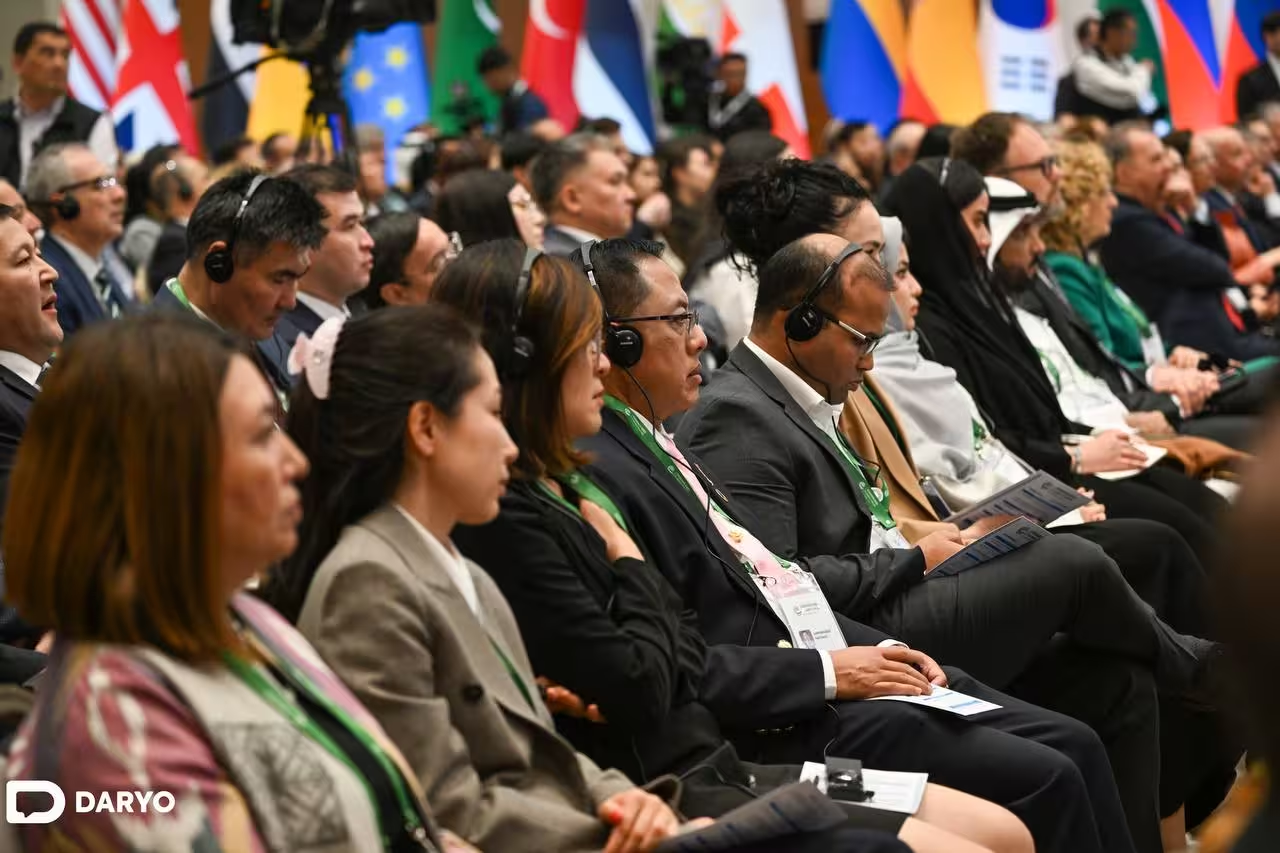
President Mirziyoyev reiterated Uzbekistan’s ambition to transition to an environmentally clean and resource-efficient economy. He announced plans to increase the share of renewable energy to 54% by 2030, reducing greenhouse gas emissions by nearly 16mn tons. The head of the state reaffirmed Uzbekistan’s commitment to reducing its emissions by 35% under the Paris Agreement.
To further deepen international cooperation, he proposed establishing the Secretariat of the EU’s Water-Energy-Climate Change Initiative in Tashkent, aimed at mobilizing resources, technology, and expertise for regional sustainability.
A new Concept for Green Development in Central Asia will also be presented at the forum, expected to lay the foundation for coordinated environmental progress in the region.
Addressing Water Security and Glacial Monitoring
Noting that water stress will significantly worsen in Central Asia by 2040 due to decreasing flows in the Amu Darya and Syr Darya rivers, Mirziyoyev outlined Uzbekistan’s actions to enhance water efficiency. These include the use of concrete irrigation channels and large-scale adoption of water-saving technologies, already implemented across 2mn hectares of land, saving 8bn cubic meters of water in the past year alone.
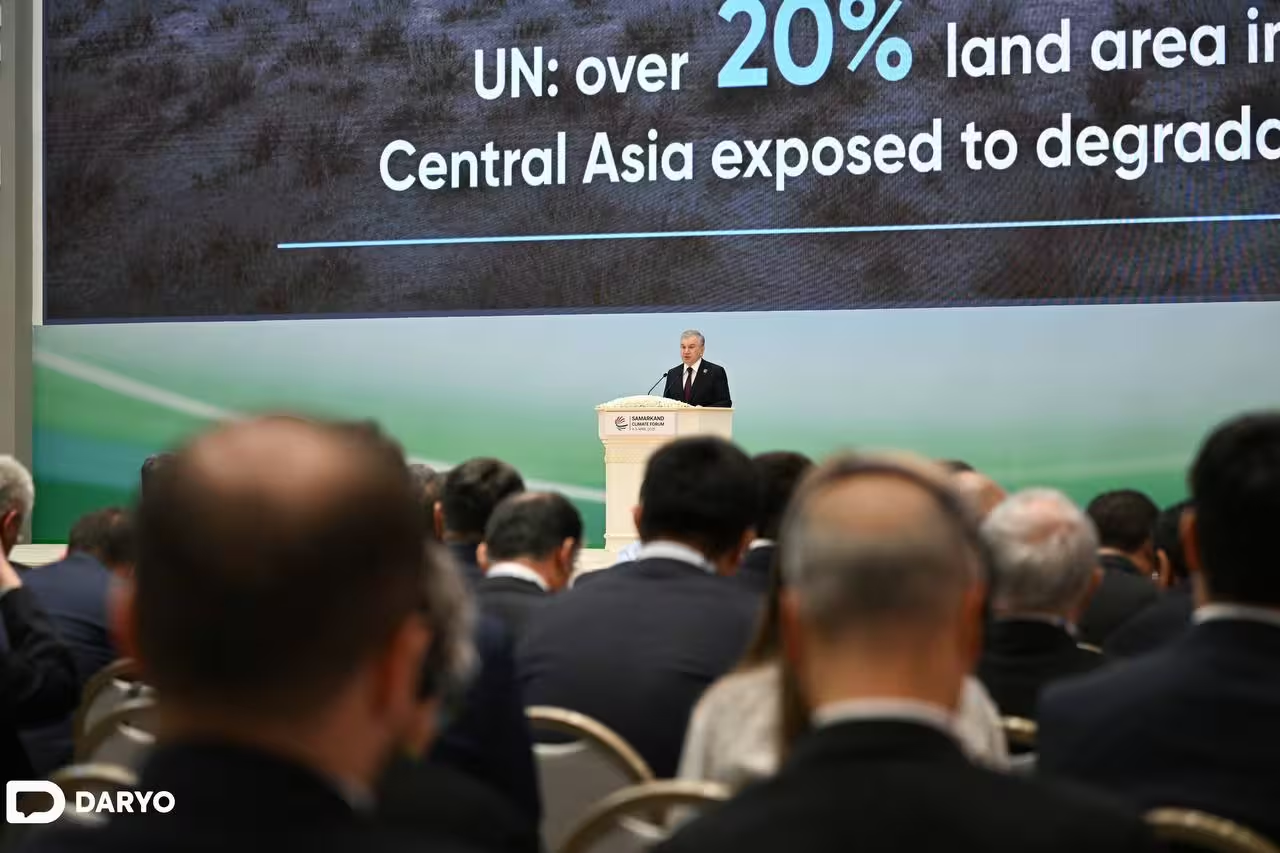
He called for a Regional Program for Water-Saving Technologies and announced Uzbekistan’s intention to host an International Forum on Water-Saving Technologies in the Aral Sea region. He also highlighted ongoing collaboration with the EU through the Copernicus program to monitor glaciers and assess environmental risks in mountainous areas.
To strengthen scientific cooperation, the president pointed to the Climate Residence at the Green University in Tashkent as a potential hub for regional climate research. He also announced the start of the Aral Cultural Summit in Nukus, aimed at raising awareness of environmental issues through art and cultural expression.
In concluding his address, Mirziyoyev invoked a timeless proverb:
“We do not inherit Earth from our ancestors—we borrow it from our children. Our mission today is to ensure that future generations inherit a world that is sustainable, safe, and full of opportunity.”
The Samarkand Climate Forum continues as leaders discuss new frameworks for collaborative action, green investment, and resilience-building across Central Asia.
